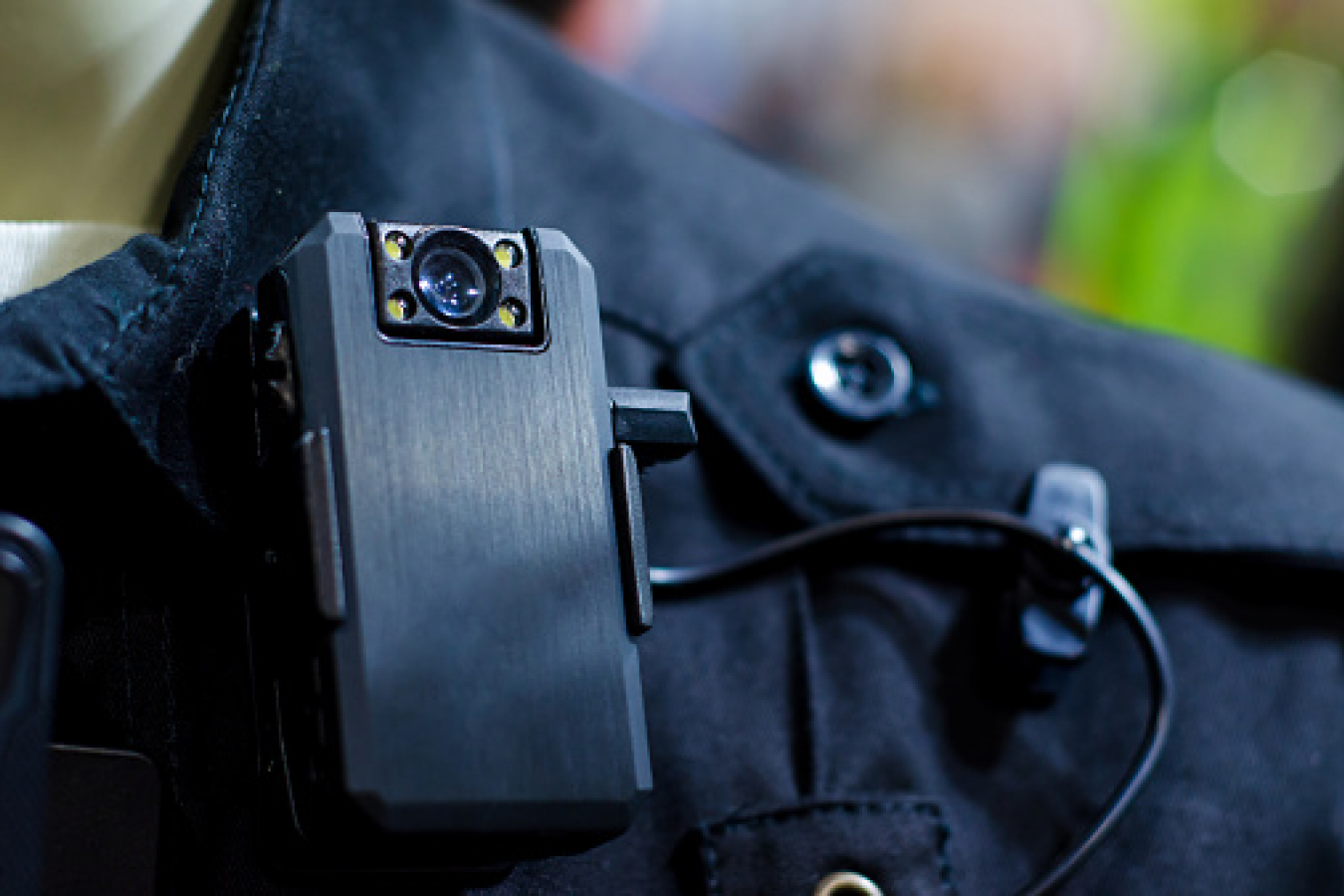bodycam.jpg

Photo on Unsplash.
Support migrant centric journalism today and donate

The Home Office has rejected police watchdog advice to equip UK immigration officers with bodycams during raids. Ministers refused to provide body-worn cameras to immigration enforcement agents, despite an Independent Office for Police Conduct (IOPC) recommendation after an asylum seeker died while being pursued by officers.
23-year-old Mustafa Dawood was found dead on the floor of an industrial unit after suffering fatal head injuries after Immigration Enforcement – a law enforcement department within the Home Office – raided a car wash in Newport, Wales back in June 2018.
An inquest into Mr Dawood’s death in November 2021 found that the actions of immigration officers could have contributed to this tragic death. The Sudanese national arrived in the UK having fled persecution in his home country. However, he was refused asylum by the Home Office and was working illegally at the Shaftesbury car wash when it was raided.
IOPC investigation
The IOPC’s investigation into Mr Dawood’s death revealed that the ‘short, generic risk assessment’ carried out prior to the raid, and the fact that just four officers were in attendance, was ‘insufficient’ for the size of the site and the associated risks.
The investigation highlighted that none of the officers were equipped with bodycams, nor was their radio communication recorded.
Following its investigation, the IOPC made a series of recommendations, including the use of body-worn cameras by Home Office Immigration Enforcement officers. The watchdog also recommended the recording of radio transmissions during enforcement visits to capture the ‘best possible evidence of the sequence of events’.
The Home Office initially accepted all the recommendations, according to a report published by The Independent. However, the Home Office has since rejected the recommendation for immigration officers to wear bodycams.
When asked for a reason for the rejection, a Home Office spokesperson said: “The equipment our Immigration Enforcement officers carry remains under constant review.”
Astonishing decision
However, project manager at charity The Gap Wales, Mark Seymour – who knew Mr Dawood – described the government’s decision not to equip UK immigration officers with bodycams as ‘astonishing’.
Mr Seymour said: “We suffered a terrible loss when our friend Mustafa died. I was with him the night before. He was a popular and friendly young man who is still much missed in the local community.”
“These recommendations were made by an independent body at cost to the taxpayer to ensure that this does not happen again. How many more tragic deaths must we see before the Home Office implement them?”, Mr Seymour added.
Similar to the police, Immigration Enforcement officers – whose duties include tracking immigration offenders and increasing compliance with UK immigration law – have various powers of arrest and detention.
Body-warn camera use increases
Across UK police forces, the use of body-warn cameras has increased. It’s a similar story in the USA. The increased use of bodycams by police comes amid concerns over a lack of accountability among law enforcement officers and the disproportionate targeting of ethnic minorities.
A 2016 study by Cambridge University academics uncovered that police who wore bodycams in the UK and California, USA received 93% fewer complaints from the public.
Separate research conducted by the University of Chicago Crime Lab in 2021 revealed that ‘use-of-force’ incidents and costs to police departments and taxpayers declined where bodycams were used.
In December 2021, US Immigration and Customs Enforcement (ICE) announced that the use of body-worn cameras was being piloted across the country amid calls for officers to provide a record of potential abuses.
The investigation into Mr Dawood’s death concluded that a decision to stop pursuing him was ‘not effectively communicated’ to all officers and that the officers involved were ‘not appropriately trained in pursuit procedures’.
Practical training in pursuits
Meanwhile, the senior coroner in Mr Dawood’s case said that UK immigration officers should undergo ‘practical training in pursuit situations’ in order to prevent future deaths.
The IOPC director for Wales, Catrin Evans, told The Independent that the IOPC had ‘stressed the importance’ of visual and audio recording of Immigration Enforcement visits during a meeting with the Home Office.
A spokesperson for the Home Office said: “Four of the IOPC’s recommendations, including to introduce tailored risk assessments and better contingency planning and safeguarding, have already been implemented, while one – to implement post-incident procedures – is still in progress.”
“The Home Office has addressed the recommendations made by the coroner in Mr Dawood’s case in relation to officer training and the resulting changes will be rolled out in April 2022. Mr Dawood’s death was a tragic incident and our thoughts and condolences remain with his family and friends,” the spokesperson added.
Workpermit.com can help with Sponsor Licences
If you need help with employing Skilled Workers and help to apply for a Sponsor Licence, including complying with your Sponsor Licence obligations, workpermit.com can help.
For more information and advice on Sponsor licences, please contact us on 0344 991 9222 or at london@workpermit.com(link sends e-mail)




















